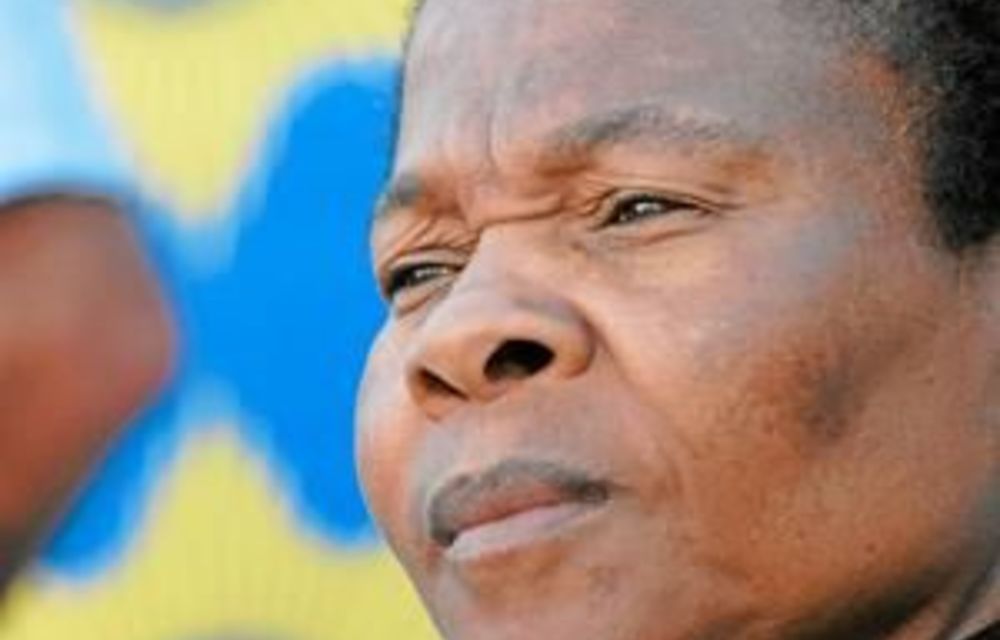
The Wild Coast belongs to future generations and should not be mined if its fragile ecosystem will be damaged, Mineral Resources Minister Susan Shabangu announced this week.
Shabangu relied on principles of sustainable development to withdraw a mining licence granted to Australian company Mineral Commodities and its South African subsidiary, Transworld Energy and Minerals.
The licence to mine sand dunes for titanium at Xolobeni on the Wild Coast was given in 2008 when “several environmental issues were outstanding” and these uncertainties meant a “risk-averse precautionary approach” should be adopted, Shabangu’s directive said.
The objectives of the Mineral Resources Development Act included giving effect to section 24 of the Constitution by ensuring mining happened in an “ecologically sound” manner while promoting justifiable social and economic development.
“Accepted principles of sustainable development imply that where a mining operation cannot internalise all its social, environmental and economic costs in the operation, the resource rightfully belongs to future generations and should not be exploited,” her directive said.
Shabangu referred to an objection to mining lodged in December 2007 by Pam Yako, the former director-general of the department of environmental affairs and tourism. It stated that the environmental impact assessment was fatally flawed and failed to deal adequately with the envisaged impact on the coastal ecosystem, water and rivers. The rehabilitation measures proposed were also insufficient.
The Eastern Cape Biodiversity Conservation Plan identified the area as one “that should not be utilised for almost any land-management practice apart from conservation and game farming”, Yako said.
Ecotourism development was a focus of the Wild Coast Spatial Development Initiative run by her department from 1997 to 2007.
Mzima Dlamini, the spokesperson for an environmental group, the Amadiba Crisis Committee, said this week tourists and investors had lost confidence in the Wild Coast after the mining licence was granted in 2008.
Fighting mining
The committee, which appealed against the granting of the licence, was set up by local community members and the European Union-funded tourism outfit, Amadiba Adventures, to fight mining.
“More than 150 jobs have been lost around Xolobeni and hundreds more along the Wild Coast because of the licence,” said Dlamini. “Mining the dunes will be a short-term thing, lasting perhaps 22 years, whereas tourism can last for hundreds of years.”
While Dlamini and legal experts in the field welcomed Shabangu’s directive, they said it had not put an end to the fight to save the Wild Coast from mining. The directive revoked the mining right, but failed to grant the Amadiba Crisis Committee’s appeal. Instead, it gave the mining companies 90 days to supply information on how mining would be carried out in compliance with the principles of sustainable development.
“The company is now required to submit additional information within the stipulated time frame, after which the mining-right application will be adjudicated by the minister,” said mineral resources spokesperson Musa Zondi.
Mineral Commodities would not say whether it would continue with the application, but posted a brief response on its website.
“The company can neither confirm nor deny the information contained in media articles as it has not been able to meet the minister, nor has it been advised of any decision,” said company secretary Peter Torre.
Dlamini was dismayed by a finding by Shabangu that sufficient consultation with interested and affected parties had taken place before the licence was granted. This was a major point of contention in the appeal.
“There is lots of opposition on the ground against mining,” he said. “There is also evidence that more consultation is needed.”
John Clarke, a development consultant on the Wild Coast, said a further delay in the decision about the licence could exacerbate joblessness as well as political volatility in the local municipality, Mbizana, the site of recent violent protests over local-government election candidate lists.
“The mining venture has constrained economic development in the area over the past 10 years,” Clarke said. “We need to get the Wild Coast back on the map as a tourist destination before all the international visitors start arriving for COP17 [the climate change conference] in Durban in November.”